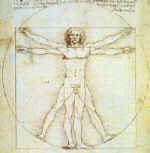Good Bye, For Now
I've written about this before. I've written before as well about what I'm about to write about now: my relationship to my body as a body with needs that I'm not sympathetic to most of the time, that discomfit me and that I feel compelled to reject or repress. I return to these topics, I roam about inside and on and under them until they become threadbare and full of holes. Shoddy. And so I thought maybe the time has come to bow out and be quiet for a while. Besides connection to the world outside myself, those bears in Siberia started me thinking about hibernation, about slinking away to a cave and keeping hidden for a while. Sleep. A small, temporary death (no allusion intended to la petite mort), a period of stillness, of silence, of nothing-doing.
My gut tells me that it's time for it in the space of this blog. The most important sign, the reason I trust my gut feeling, is a disenchantment I've started to feel with myself when I'm here, a faint boredom with the content of my thoughts. And if I don't care that much about what I have to say, then how can anyone else? I've been troubled by the public nature of this space since day one, and this discomfort never dissipated. I'm more familiar with it now, a little more at ease with it, but it's still there, a thorn-in-the-side kind of friend. Openness will never come easily to me, at least outside my close relationships. I've felt almost every week as I sat in front of the blank Blogger message window the impulse to hide, not to write my blog for fear that people I knew and people I didn't know would read it. I have to give myself credit for the courage to show up to write despite this very deep-seated reluctance. It seems a little silly to talk about having lived in the spotlight, but that's how this year of blogging felt to me. It's been a tiny and rather dim spotlight, but it seemed quite blinding and enormous to me.
So I'm going back into the shadows, at least for a while. I don't want to run without looking back, to bolt thoughtlessly back into my comfort zone, so this is my attempt at a graceful last bow on the stage. Thank you to everyone who has read. You gave me the feeling that I was a part of a community of minds, and that was an unexpectedly good feeling.



